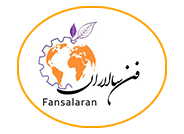about fansalaran
FanSalaran is a comprehensive media platform dedicated to reporting and clarifying the significant achievements of pharmaceutical companies. In collaboration with passionate and motivated young journalists, this website consistently strives to showcase the country's successes in order to inspire and encourage the hardworking individuals of this land.
Lilly, Novo Nordisk near White House deals on obesity drug prices, Endpoints News reports
Eli Lilly and Novo Nordisk plan to announce new...
Novo Nordisk Lowers Full-Year Profit Guidance in New CEO’s Maiden Quarter
Wegovy-maker Novo Nordisk lowered its full-year profit forecast on...
Compass Pathways to expedite launch timing of its experimental depression therapy
Drug developer Compass Pathways said on Tuesday it is...
Pharma Investment to establish manufacturing facility at SOHAR Freezone
SOHAR Port and Freezone has signed a land lease...
Novo Nordisk, Pfizer sweeten bid for Metsera as bidding war heats up
Novo Nordisk and Pfizer have revised their bids for...
Lilly, Novo Nordisk near White House deals on obesity drug prices, Endpoints News reports
Eli Lilly and Novo Nordisk plan to announce new...
Novo Nordisk Lowers Full-Year Profit Guidance in New CEO’s Maiden Quarter
Wegovy-maker Novo Nordisk lowered its full-year profit forecast on...
Compass Pathways to expedite launch timing of its experimental depression therapy
Drug developer Compass Pathways said on Tuesday it is...
Pharma Investment to establish manufacturing facility at SOHAR Freezone
SOHAR Port and Freezone has signed a land lease...
Novo Nordisk, Pfizer sweeten bid for Metsera as bidding war heats up
Novo Nordisk and Pfizer have revised their bids for...
Lilly, Novo Nordisk near White House deals on obesity drug prices, Endpoints News reports
Eli Lilly and Novo Nordisk plan to announce new...
Novo Nordisk Lowers Full-Year Profit Guidance in New CEO’s Maiden Quarter
Wegovy-maker Novo Nordisk lowered its full-year profit forecast on...
Compass Pathways to expedite launch timing of its experimental depression therapy
Drug developer Compass Pathways said on Tuesday it is...
Pharma Investment to establish manufacturing facility at SOHAR Freezone
SOHAR Port and Freezone has signed a land lease...
Novo Nordisk, Pfizer sweeten bid for Metsera as bidding war heats up
Novo Nordisk and Pfizer have revised their bids for...
Lilly, Novo Nordisk near White House deals on obesity drug prices, Endpoints News reports
Eli Lilly and Novo Nordisk plan to announce new...
Novo Nordisk Lowers Full-Year Profit Guidance in New CEO’s Maiden Quarter
Wegovy-maker Novo Nordisk lowered its full-year profit forecast on...
Compass Pathways to expedite launch timing of its experimental depression therapy
Drug developer Compass Pathways said on Tuesday it is...
Pharma Investment to establish manufacturing facility at SOHAR Freezone
SOHAR Port and Freezone has signed a land lease...
Novo Nordisk, Pfizer sweeten bid for Metsera as bidding war heats up
Novo Nordisk and Pfizer have revised their bids for...
Headlines
Lilly, Novo Nordisk near White House deals on obesity drug prices, Endpoints News reports
Eli Lilly and Novo Nordisk plan to announce new...
Novo Nordisk Lowers Full-Year Profit Guidance in New CEO’s Maiden Quarter
Wegovy-maker Novo Nordisk lowered its full-year profit forecast on...
Compass Pathways to expedite launch timing of its experimental depression therapy
Drug developer Compass Pathways said on Tuesday it is...
Pharma Investment to establish manufacturing facility at SOHAR Freezone
SOHAR Port and Freezone has signed a land lease...
Fansalaran
Get important news delivered directly to your inbox and stay connected!


